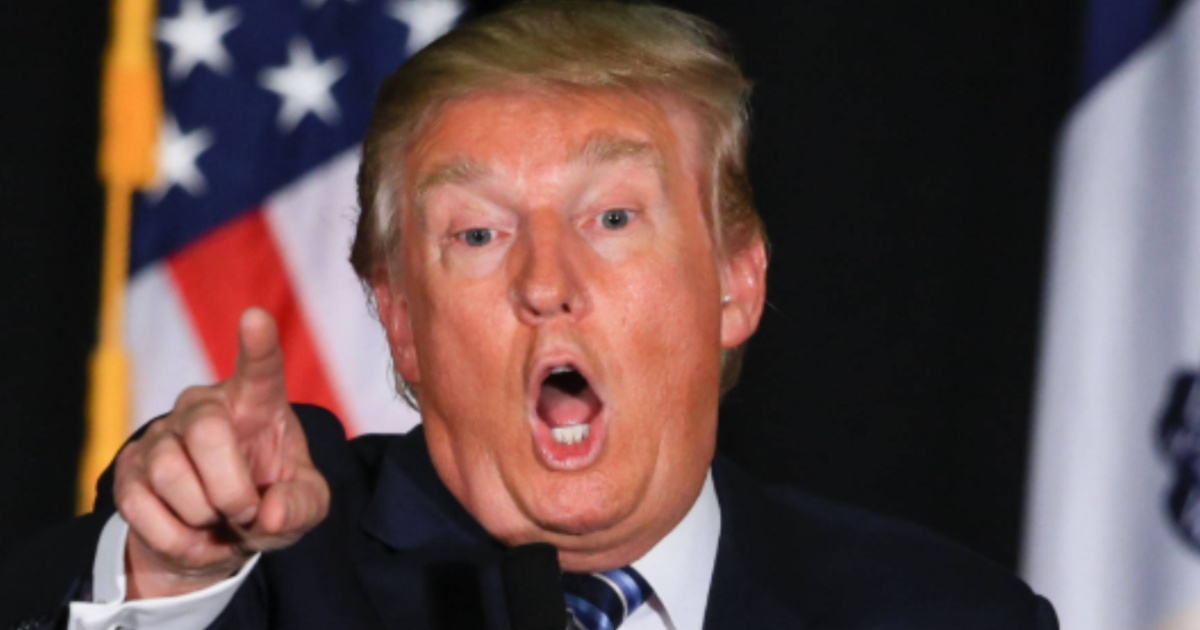A senior psychology lecturer at Cornell University, Harry Segal, has identified two behavioral changes in President Donald Trump that he believes strongly indicate cognitive decline.
The remarks, made in an interview with The Guardian and published on August 3, come amid growing public debate over the 79-year-old president’s mental fitness during his second term.
Segal pointed to Trump’s tendency to abruptly switch topics mid-conversation without any logical transition, a pattern he described as “digressing without thinking… without a coherent narrative.” According to Segal, such sudden shifts can signal diminished self-regulation and difficulty maintaining a consistent train of thought—changes that are often associated with neurological aging.
The second behavior he highlighted is confabulation, where a person unintentionally creates inaccurate or distorted memories and believes them to be true. “It’s where he takes an idea or something that’s happened and he adds to it things that have not happened,” Segal explained. As an example, he referenced Trump’s claim that his uncle taught the Unabomber at MIT, an assertion that is factually impossible.
The Guardian report also cited other moments in which Trump’s public remarks appeared confused or disconnected. These included unsupported claims about U.S. aid to Gaza, tangents about windmills during meetings with European leaders, and off-topic digressions in formal settings. Experts have noted that these incidents, combined with repetitive speech and incomplete thoughts, could be viewed as classic signs of cognitive decline.
🇺🇸’He has trouble completing a thought’: bizarre public appearances again cast doubt on Trump’s mental acuity:
Trump shows signs of cognitive problems, similar to Biden.
“The abrupt topic changes in conversation are an example of Trump getting distracted without thinking — he… pic.twitter.com/a4jnhuOLdj
— 𝐃𝐚𝐯𝐢𝐝 𝐙 🇷🇺 🇷🇺 (@SMO_VZ) August 4, 2025
Segal’s comments align with previous concerns raised by mental health professionals who have observed similar patterns in Trump’s speeches over the years. Some have noted phonemic paraphasia—errors in speech sounds—which can sometimes appear in early stages of dementia.
The White House and Trump’s allies have firmly rejected any suggestion that the president is cognitively impaired. A spokesperson dismissed the concerns as politically motivated, insisting that Trump’s “mental sharpness is second to none” and that he continues to work tirelessly on behalf of the country.
Former White House physician Ronny Jackson and the current medical team have also stated that Trump is in excellent cognitive and physical health, citing normal results on standard cognitive assessments.
Trump’s age and family history, which includes dementia, have nonetheless kept the issue in the public conversation. If he completes his second term, he will leave office as the oldest president in U.S. history.
Critics argue that these factors make transparency about his health essential. At the same time, supporters counter that his energy levels, busy schedule, and distinctive speaking style, something Trump has referred to as “the weave,” are evidence that he remains fully capable of leading.
Segal maintains that the behaviors he identified should not be dismissed as quirks or political theater. He sees them as potentially essential markers of neurological aging, which, if medically confirmed, could have profound implications for Trump’s presidency and for how Americans view the mental demands of the office.
After all, Joe Biden’s declining speech ultimately led to him stepping down from the election campaign last year. Much has been made of Trump’s mental decline, with media personality Charlamagne tha God pointing out how the President seemingly has symptoms of dementia.
His niece, Mary Trump, has also claimed that he is showing signs of Alzheimer’s disease. For the meantime, his supporters don’t appear concerned about his mental fortitude. It’s worth noting that he is also the oldest president in history.









